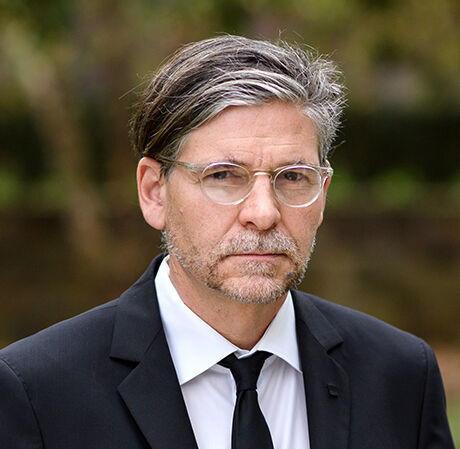PRINCETON — The satirist Karl Kraus observed about his native Austria in 1899: “When the constitution is violated, the people just yawn.” How upset Austrians really were last week when Chancellor Sebastian Kurz was accused of corruption is unclear. But the charges, and the public leaks of vulgar chats involving Kurz and his colleagues, were serious enough to prompt his always somewhat unlikely coalition partner, the Greens, to bring him down.
Kurz’s fall is widely seen as having consequences beyond Austria: His approach had been touted as a model for centre-right parties across Europe, especially in Germany, where the Christian Democrats are currently in disarray after their dramatic election loss last month. But “Kurzism” has been all about style and tactics, not new political ideas or, for that matter, a sustainable alliance of social forces. Worse, Kurz’s model is downright dangerous for democracy.
Just 35 years old, Kurz has the distinction of having been ex-chancellor twice already. He was always the youngest and fastest: Foreign minister at 27, chancellor at 31. He was also fast when it came to switching political positions: Initially liberal, he turned hardliner on matters of immigration and refugee policy, in effect copying and mainstreaming the far-right Freedom Party (FPÖ). In 2017, he entered a coalition with the FPÖ. When a similar government had been formed in Austria in 2000, it set off alarm bells across Europe. This time, with Hungary and Poland having since pioneered the autocratisation of EU member states, the creation of the Kurz coalition elicited only yawns.
Mainstreaming the far right has been a general trend across Europe, owing partly to the fact that centre-right parties are bereft of ideas. For many years, the conventional wisdom has been that social democracy is in a terminal crisis. But the fact is that the proverbial man (or woman) on the street will be able to indicate roughly what it is about. The same has not been true of centre-right forces: Christian Democrats, in particular, no longer push for European integration or offer a distinctive model, in line with Catholic social doctrine, for mediating conflicts between capital and labor.
Even after the fall of the Berlin Wall, they relied on a Cold War strategy of being the moderate centre that served as a bulwark against communism. As Germany’s Christian Democratic Union (CDU) discovered a few weeks ago, because warnings about a red menace are so implausible, reliance on them is widely perceived as a sign of desperation and intellectual bankruptcy.
Kurz did not solve the problem of a conservatism without qualities. But he was a master of public relations: Rebranding the staid Austrian People’s Party (ÖVP) as a “movement” suggested youthful dynamism. A “movement” connotes grassroots enthusiasm and participation. But the reality was the opposite: what Kurz sold as a “new style” consisted of the ÖVP having to accept his total dominance. Party elders agreed that Kurz alone would decide on candidates and set the programmatic direction of what was rebranded as the “Sebastian Kurz List”. The latter was not a people’s party reinvented for a new age; it was and is a single person’s party.
Plenty of people both inside and outside the ÖVP probably liked Kurz’s post-2017 leadership. After all, it contrasted with the squabbling in the grand coalitions between Social and Christian Democrats that had dominated postwar Austrian politics. And, whereas the ÖVP had long been divided by rivalries between old male barons in control of individual federal states, Kurz’s team was disciplined, remained on message, and was excellent at dominating coalition partners, be it on the far right or the left. If the anti-corruption authorities’ accusations are true, they were also good at manipulating the press and fanning the flames of political conflict, as long as it served the ambitions of their man.
Legal and democratic theorists are right to say that an internally autocratic party is likely to exhibit autocratic tendencies in government. Kurz in effect took a page from Hungarian Prime Minister Viktor Orbán’s playbook, with frequent attacks on independent news organisations and the judiciary (and, like Silvio Berlusconi, portraying himself as the innocent victim of a vast conspiracy by a nefarious left-wing establishment).
Kurz has not succeeded the way Orbán has, but it would be premature to conclude that, west of the former Iron Curtain, the centre will always hold. Kurz himself, promising to step aside (but not down), has just been elected as leader of his party’s parliamentary group, receiving 98.7 per cent support in a secret vote, just what one would expect when anything resembling intra-party democracy has been killed, even former US President Donald Trump, who has reshaped the Republican Party into a personality cult, has not managed such a feat.
In Germany, Markus Söder, the leader of the CDU’s Bavarian sister party, the Christian Social Union, is likely to dominate the centre-right in the coming years; he is at least as ruthless as Kurz and just as opportunistic. The venerable Christian Democrat Wolfgang Schäuble did his utmost to prevent Söder from becoming the party’s candidate for German Chancellor this past spring, fearing that Söder, following Kurz’s template, would hollow out and in effect destroy his party.
Christian Democrats and centre-right forces more broadly need to rethink what they stand for, beyond a claim to technocratic competence. They also must decide where to draw the line vis-à-vis the far right. The alternative, as Kurz’s example demonstrates all too clearly, is a quasi-authoritarian politics that regards democratic institutions like the judiciary and the free press as pesky obstacles for a charismatic and popular leader.
Jan-Werner Mueller, professor of Politics at Princeton University, is a fellow at The New Institute, Hamburg. His most recent book isDemocracy Rules. Copyright: Project Syndicate, 2021. www.project-syndicate.org
